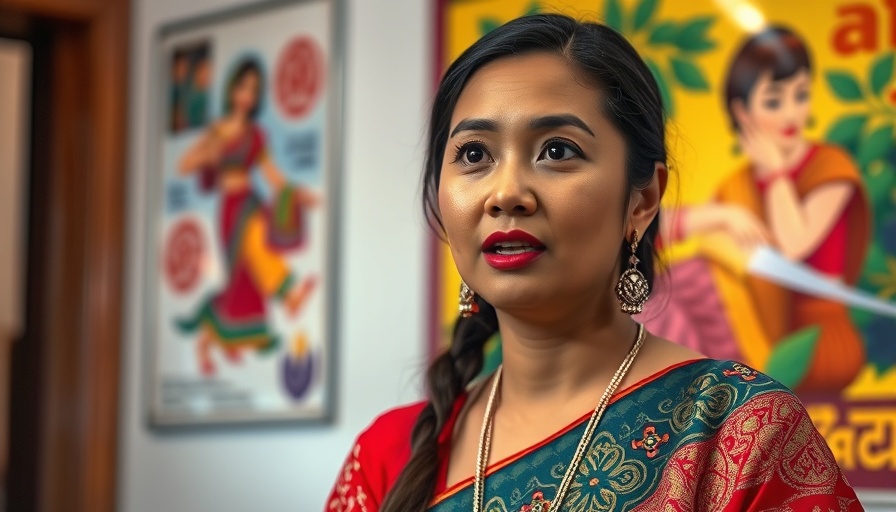
The Complex Leadership Dilemma in Rivers State
In a gripping discussion, Hilda Dakubo sheds light on an evolving political crisis in Rivers State, Nigeria. The state's populace finds itself adrift, seeking direction and leadership amidst escalating confusion regarding governance. Dakubo, addressing her audience like a vigilant mother, paints a vivid image of a fractured system where it remains unclear who holds authority, thus crippling development and the collective spirit of the citizens.
In 'You can't have a governor and have another person who is in charge,' Hilda Dakubo explores the leadership crisis in Rivers State, raising key questions about accountability and governance that we further analyze here.
Unpacking Historical Context: The Political Cycle of Neglect
To understand the current turbulence, one must delve into the historical backdrop of political leadership in Rivers State. Dakubo draws parallels between past governance, citing former Governor Peter Odili's reign as a formative period when local resources were improperly allocated, prioritizing grand political ambitions over community welfare. The pattern of political neglect seems to repeat itself, as current leaders appear to be ensnared by ambitions that detract from addressing state-level issues, thus echoing the sentiments often shared among residents who are weary of unfulfilled promises.
Deciding Leadership: The People's Voice
Central to Dakubo's message is the crucial question of who truly governs the state. The citizens of Rivers State cast their votes based on democratic principles, yet an aura of uncertainty looms regarding whether their chosen governor has the autonomy to lead without external pressures. Dakubo's call to allow the electorate to guide their political future underscores a pressing need for accountability in governance—a theme resonating throughout various regions facing similar predicaments in Africa today.
Current Political Machinations: Transparency or Threat?
As Dakubo highlights, the atmosphere is rife with threats, both veiled and overt, which further complicates governance. Potential rivalries between the current leadership and contenders for power are not merely hypothetical speculations; they manifest in the form of dire consequences for resource management and societal cohesion. The community cries out for clarity in leadership to foster development rather than division.
Resources at Stake: The Price of Political Ambitions
A staggering concern for Rivers State is the perceived mismanagement of local resources. With current reports indicating an alarming lack of transparency, stakeholders question whether revenues intended for community upliftment are being diverted to fuel personal ambitions. Dakubo's poignant observations serve as a wake-up call, urging leaders to reassess their priorities—far beyond political gains—to ensure the prosperity of the state.
What This Means for Rivers: Engaging the Citizens
This discourse invites citizens and community leaders alike to engage actively in governance. Dakubo stresses the importance of a united front to demand accountability and greater representation. If the populace can coalesce around shared aspirations for a more equitable political framework, they can self-empower to reclaim their agency and drive forward meaningful change.
Taking Action: The Role of Civic Engagement in Governance
For the residents of Rivers State and communities throughout Africa grappling with similar challenges, civic engagement is key. Empathy towards collective struggles binds citizens; thus, they must join hands in demanding transparency and accountability. Opportunities for dialogue and collaboration should be prioritized to bridge the leadership vacuum, shaping a new narrative that emphasizes inclusivity rather than political machinations.
In conclusion, as we reflect on Hilda Dakubo's urgent call for clarity and accountability in Rivers State, let’s remember that the essence of leadership lies not merely in the position held but in the genuine will to serve the people effectively. If you care about fostering meaningful change in your community, stay informed, advocate for transparency, and amplify the voices that need to be heard.
 Add Row
Add Row  Add
Add 


Write A Comment